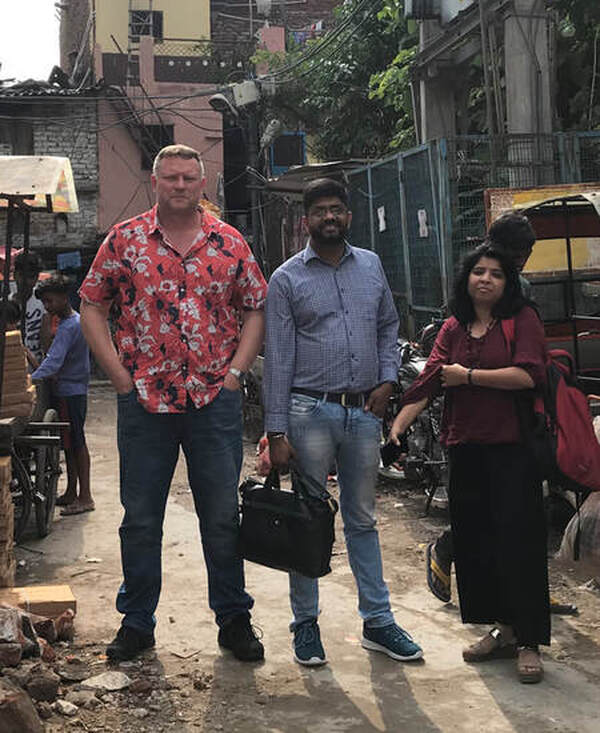|
fThe Road to Parity’s partnership with Indian NGO, Learning Links Foundation, (LLF) has drawn to a close after supporting scores of new businesses. The charity, which helps people in extreme poverty to become entrepreneurs, has been working with LLF since 2019. Together, they created Project Unnati, which has seen the establishment of 90 businesses in the slums of Delhi, benefitting around 500 people. “All good things come to an end, and I fully understand that priorities can sometimes change in a partnership,” said Jonathan Hill, Founder of The Road to Parity (TRTP). “It’s been brilliant working with LLF. We have built an entrepreneur programme from scratch to assist some of the poorest people on the planet and delivered life-changing results. I am very grateful to the team in India for their contribution over the years to create something really special and meaningful.” Sudeep Dube, Senior Vice President at LLF, said: “Since 2019, it’s been an amazing journey of learning and implementing ‘Unnati’ Project in partnership with The Road to Parity, and needless to say that it was an incredible experience to work on this high impact program for the ‘Bottom of the pyramid’. Unlike any other project, it has been very rewarding in the sense that the time difference between outcome and impact was marginal. Together, this partnership has seen highs and lows of the program and faced the intimidating period of pandemic and never before lockdown period in history of India.” Sudeep added: “Due to certain changes in our operational strategy, LLF will no longer be able to support the program, Nevertheless, we shall always be proud of making remarkable change in the life of beneficiaries who have been supported under the program.” Under Project Unnati, a host of enterprises have been set up. Many were street-based, selling clothes, household goods, jewellery, cosmetics, fruit and vegetables, as well as tea and snacks. Other businesses have been supported to repair bicycles, carry out air conditioning repairs and welding. There have also been home-based businesses, such as tailoring and ironing. The charity provides a one-off micro grant to help buy the equipment and supplies needed to begin an enterprise and some start-up guidance. The simplicity of the model means the businesses can become profitable almost immediately, generating a means of financial independence. In addition to being in extreme poverty, many of the beneficiaries are illiterate, while others have been victims of domestic violence, or are mentally and physically challenged – making the many success stories even more remarkable. The project was named Unnati (meaning progress) after one of the first beneficiaries said she felt her new business would bring prosperity to her family after years of suffering extreme poverty.
TRTP secretary Richard Owens said: "It’s a sign of maturity that the charity is now able to evaluate and move beyond our very first overseas partnership. In my experience in the third sector as a CEO and trustee, the deep value and learning opportunity that come from this first ever partnership will be carried forward for many years ahead. Thanks should go to LLF for catching our vision and identifying beneficiaries. What a joy to see the social, emotional, and economic impact of our interventions. Now we look to the future!" Jonathan added: “Starting in India was the right thing to do because that’s where the idea for the programme came from. Now, for us to continue our work, we are looking for a new partner, either in India, or in another developing nation where there is extreme poverty. “
0 Comments
Leave a Reply. |
AuthorThe Road to Parity Archives
April 2024
|



 RSS Feed
RSS Feed